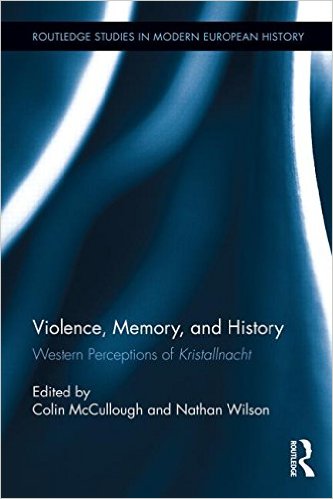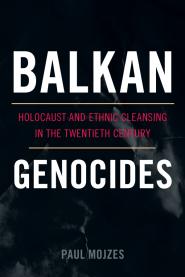You are not obliged to complete the work, but you are not free to desist from it either.
–Rabbi Tarfon (from the Talmud)
On February 6, as part of the IAS Collaborative Reframing Mass Violence lecture series, CHGS partnered with the Human Rights Program and the Film Society of Minneapolis/St. Paul for a screening of the documentary film Granito: How to Nail a Dictator . A discussion with its director, Pamela Yates, and producer, Paco de Onís followed. Granito tells a breathtaking story of courage and perseverance in the pursuit of justice that uniquely embodies the quote above from the Talmud.
The film spans thirty years as five protagonists in Guatemala, Spain, and the United States attempt to bring truth, memory, and justice to the violence-plagued Central American country. A US filmmaker, a forensic anthropologist, a Spanish lawyer, a Maya survivor, and a Guatemalan witness activist each become a “granito,” a tiny grain of sand, adding up to an extraordinary accomplishment three decades after the atrocities: the indictment and trial of ex-dictator General Ríos Montt, former de facto president and responsible for a genocidal campaign that killed thousands of indigenous Guatemalans during the bloodiest phase of a war against the leftist guerrillas in 1982-1983. On May 10, 2013, Ríos Montt was convicted of genocide and crimes against humanity. It was the first time a former head of state had been found guilty of genocide by a court in his own country.
The last chapter of this Guatemalan story is yet to be written. Only ten days after the ruling, the Constitutional Court of Guatemala overturned the conviction under pressure from an organization representing the country’s deeply reactionary oligarchy.
Still, the judgment marked a turning point in Guatemalan history, and it has also become part of the history of human rights. It sends a clear message to other parts of the world where present or former perpetrators still live in freedom and privilege despite proven involvement in atrocious crimes. It also teaches an important lesson: As a collective effort, step by step or “grain by grain,” even in Guatemala-one of the most profoundly unjust societies in the Americas-justice can be achieved.
Alejandro Baer is the Stephen C. Feinstein Chair and Director of the Center for Holocaust and Genocide Studies.

 Genocide is a phenomenon that continues to confound scholars, practitioners, and general readers. Notwithstanding the carnage of the twentieth century, our understanding of genocide remains partial. Disciplinary boundaries have inhibited integrative studies and popular, moralizing accounts have hindered comprehension by advancing simple truths in an area where none are to be had.
Genocide is a phenomenon that continues to confound scholars, practitioners, and general readers. Notwithstanding the carnage of the twentieth century, our understanding of genocide remains partial. Disciplinary boundaries have inhibited integrative studies and popular, moralizing accounts have hindered comprehension by advancing simple truths in an area where none are to be had. Commemorating the Holocaust: The Dilemmas of Remembrance in France and Italy reveals how and why the Holocaust came to play a prominent role in French and Italian political culture in the period after the end of the Cold War. By charting the development of official, national Holocaust commemorations in France and Italy, Rebecca Clifford explains why the wartime persecution of Jews, a topic ignored or marginalized in political discourse through much of the Cold War period, came to be a subject of intense and often controversial debate in the 1990s and 2000s.
Commemorating the Holocaust: The Dilemmas of Remembrance in France and Italy reveals how and why the Holocaust came to play a prominent role in French and Italian political culture in the period after the end of the Cold War. By charting the development of official, national Holocaust commemorations in France and Italy, Rebecca Clifford explains why the wartime persecution of Jews, a topic ignored or marginalized in political discourse through much of the Cold War period, came to be a subject of intense and often controversial debate in the 1990s and 2000s. Since the end of Communism, Jews from around the world have visited Poland to tour Holocaust-related sites. A few venture further, seeking to learn about their own Polish roots and connect with contemporary Poles. For their part, a growing number of Poles are fascinated by all things Jewish. Erica T. Lehrer explores the intersection of Polish and Jewish memory projects in the historically Jewish neighborhood of Kazimierz in Krakow. Her own journey becomes part of the story as she demonstrates that Jews and Poles use spaces, institutions, interpersonal exchanges, and cultural representations to make sense of their historical inheritances.
Since the end of Communism, Jews from around the world have visited Poland to tour Holocaust-related sites. A few venture further, seeking to learn about their own Polish roots and connect with contemporary Poles. For their part, a growing number of Poles are fascinated by all things Jewish. Erica T. Lehrer explores the intersection of Polish and Jewish memory projects in the historically Jewish neighborhood of Kazimierz in Krakow. Her own journey becomes part of the story as she demonstrates that Jews and Poles use spaces, institutions, interpersonal exchanges, and cultural representations to make sense of their historical inheritances. What did people hear about Kristallnacht outside of Germany in 1938 from governments and media sources? How did governments and ordinary people respond to the plight of the Jewish community there? How have lives been affected by Kristallnacht in the seventy years since its occurrence? This interdisciplinary study of erasure and enshrinement seeks to answer these questions, exploring issues of memory and forgetting (in both the material and symbolic sense), and how the meaning of Kristallnacht has been altered by various actors since 1938.
What did people hear about Kristallnacht outside of Germany in 1938 from governments and media sources? How did governments and ordinary people respond to the plight of the Jewish community there? How have lives been affected by Kristallnacht in the seventy years since its occurrence? This interdisciplinary study of erasure and enshrinement seeks to answer these questions, exploring issues of memory and forgetting (in both the material and symbolic sense), and how the meaning of Kristallnacht has been altered by various actors since 1938. On March 24, 1944, Nazi occupation forces in Rome killed 335 unarmed civilians in retaliation for a partisan attack the day before.
On March 24, 1944, Nazi occupation forces in Rome killed 335 unarmed civilians in retaliation for a partisan attack the day before.  During the 20th century, the Balkan Peninsula was affected by three major waves of genocides and ethnic cleansings, some of which are still being denied today. In Balkan Genocides Paul Mojzes provides a balanced and detailed account of these events, placing them in their proper historical context and debunking the common misrepresentations and misunderstandings of the genocides themselves.
During the 20th century, the Balkan Peninsula was affected by three major waves of genocides and ethnic cleansings, some of which are still being denied today. In Balkan Genocides Paul Mojzes provides a balanced and detailed account of these events, placing them in their proper historical context and debunking the common misrepresentations and misunderstandings of the genocides themselves. Dating back millennia, antisemitism has been called “the longest hatred.” Thought to be vanquished after the horrors of the Holocaust, in recent decades it has once again become a disturbing presence in many parts of the world. Resurgent Antisemitism presents original research that elucidates the social, intellectual, and ideological roots of the “new” antisemitism and the place it has come to occupy in the public sphere. By exploring the sources, goals, and consequences of today’s antisemitism and its relationship to the past, the book contributes to an understanding of this phenomenon that may help diminish its appeal and mitigate its more harmful effects.
Dating back millennia, antisemitism has been called “the longest hatred.” Thought to be vanquished after the horrors of the Holocaust, in recent decades it has once again become a disturbing presence in many parts of the world. Resurgent Antisemitism presents original research that elucidates the social, intellectual, and ideological roots of the “new” antisemitism and the place it has come to occupy in the public sphere. By exploring the sources, goals, and consequences of today’s antisemitism and its relationship to the past, the book contributes to an understanding of this phenomenon that may help diminish its appeal and mitigate its more harmful effects. Dilemmas, silence, active rescue, and passivity are words often associated with Pius XII. “Critics” emphasize the wartime Pope’s failure to condemn Nazism, while “defenders” maintain that Vatican neutrality facilitated rescue activities by the faithful. This publication, which consists of the oral presentations of scholars gathered at
Dilemmas, silence, active rescue, and passivity are words often associated with Pius XII. “Critics” emphasize the wartime Pope’s failure to condemn Nazism, while “defenders” maintain that Vatican neutrality facilitated rescue activities by the faithful. This publication, which consists of the oral presentations of scholars gathered at